The New Zealand Medical Assistance Team (NZMAT) is a team of health specialists with the necessary skills, qualifications and training to support a health emergency response within New Zealand or the south-west Pacific.
If you have employees who wish to volunteer with NZMAT, the following information gives an overview of what is involved.
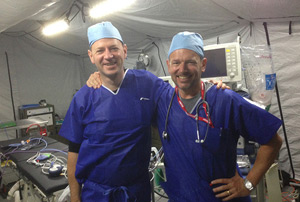 Disruption to employers
Disruption to employers
NZMAT personnel are not required for every deployment
Recruitment to the NZMAT includes a comprehensive application review and selection process. Not every person will be required for any given deployment.
When NZMAT is activated, only a fraction of the trained personnel are deployed.
Selecting NZMAT personnel to avoid disruption
Selection of personnel for teams will avoid, whenever possible, placing multiple people from the same department of an organization on deployment at the same time. The Ministry of Health will avoid deploying the same personnel more than once a year whenever possible and will liaise with personnel and their employers to reduce the burden on the home and workplace as much as possible.
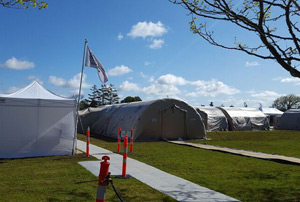 Timing and length of deployments
Timing and length of deployments
Advance notice
Depending on their role within NZMAT and the requirements of the affected area requesting NZMAT assistance, advance notice of deployment could range from a few hours to a few days.
Frequency
We envisage deployments will be infrequent. The average individual deploys less than once a year but will be dependent on the number of disasters/major events that occur annually.
Length
The maximum deployment is 14 days plus travel days as required. There is a possibility that deployments maybe extended depending on the needs of the mission. However, deployments may be for shorter time periods as well, depending upon the requirements of the affected area.
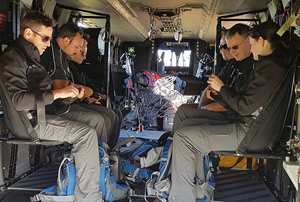 Agreeing for employees to join NZMAT
Agreeing for employees to join NZMAT
Employers will be asked to approve their employee’s membership of NZMAT in principle, based on their operational requirements at the time. An Employer Acknowledgement Form is available for this purpose.
You can refuse to let your employee join the NZMAT or go on an official deployment, but any training and experience they gain will benefit you as an employer during a disaster in the area you serve.
Why not wait until there is an event before recruiting health professionals?
It is important for NZMAT personnel to be carefully selected: not all health professionals will be suited to the challenging demands of a health disaster response. It is important to capture full details of personnel (eg, passport details and next of kin) to speed their deployment.
Likewise, the Ministry of Health can then arrange health and travel insurance at short notice. Ad-hoc responses at the time of a disaster result in slower responses, ad-hoc outcomes and increased risk – not only to untrained staff but also to their patients.
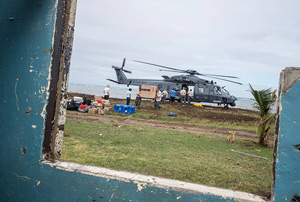 Pay for employees while on deployment
Pay for employees while on deployment
Detailed instructions will be sent to managers regarding the pay reimbursement process for deployed employees.
Note:
- Employees who normally work part-time will be paid as full-time for the duration of the deployment
- Employers cannot ask employees:
- to make up missed time from work due to NZMAT deployment
- use annual leave for an NZMAT deployment.
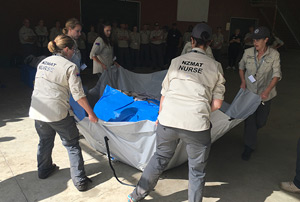 Training requirements and costs
Training requirements and costs
Health employers have a responsibility to ensure their staff are trained to prepare for and respond to health emergencies. Nevertheless, NZMAT specific training for selected applicants will be organised by the Ministry of Health and will be paid for from time to time.
Training demands on employee time will be modest, ranging from 1–7 days per year depending on the course, exercise or meeting.
 Insurance
Insurance
It is the responsibility of NZMAT personnel to provide for and maintain their own professional indemnity insurance. Some insurance schemes will extend cover for NZMAT deployments. The Medical Protection Society and the NZ Nurses Organisation have confirmed that they are able to extend cover for insured members for SW Pacific health emergency deployments, and the Ministry of Health can expedite this cover for NZMAT personnel if required for a deployment. It is the responsibility of all NZMAT personnel to ensure they have indemnity insurance coverage prior to deployment and provide documented evidence of such to the NZMAT Programme Manager.
NZMAT personnel with other insurance schemes should check on their status for cover during SW Pacific deployments with their insurer.
Some employers show support of their employee by extending the employee’s usual indemnity coverage during a NZMAT deployment.
Health and travel insurance
NZMAT personnel deployed will have their health and travel insurance covered by the Ministry of Health while on deployment.
